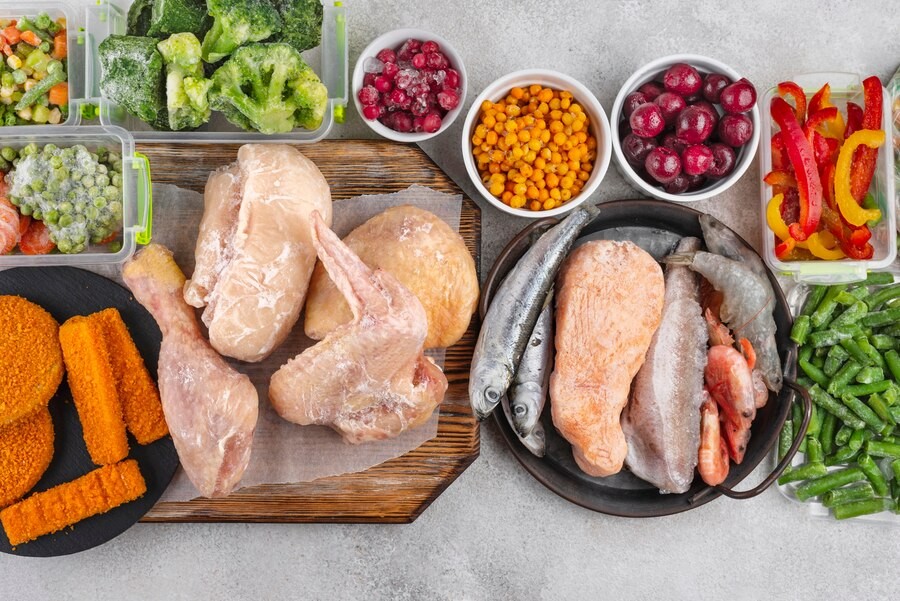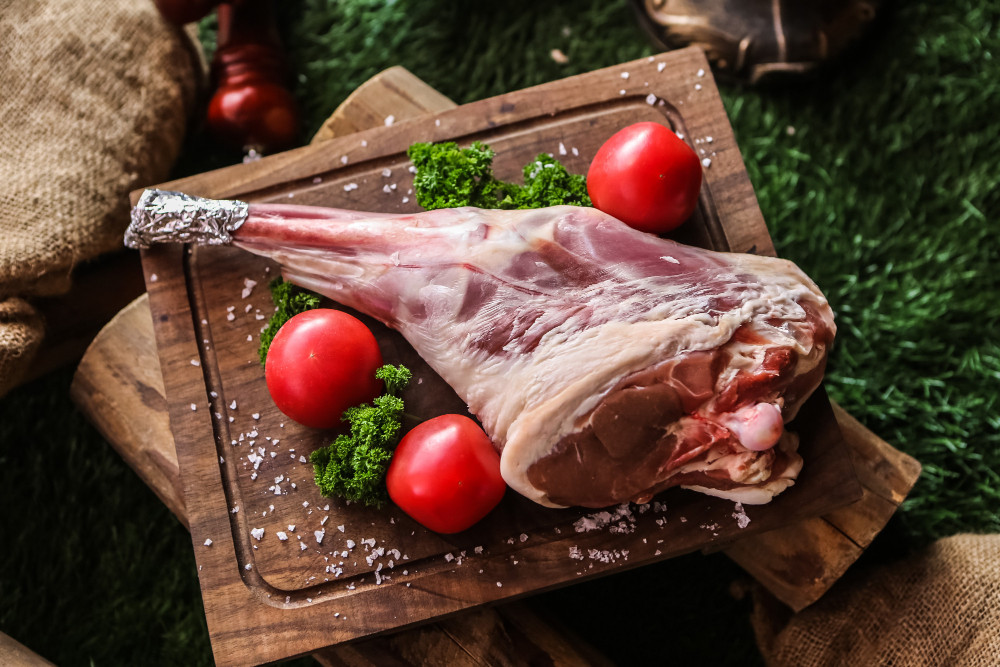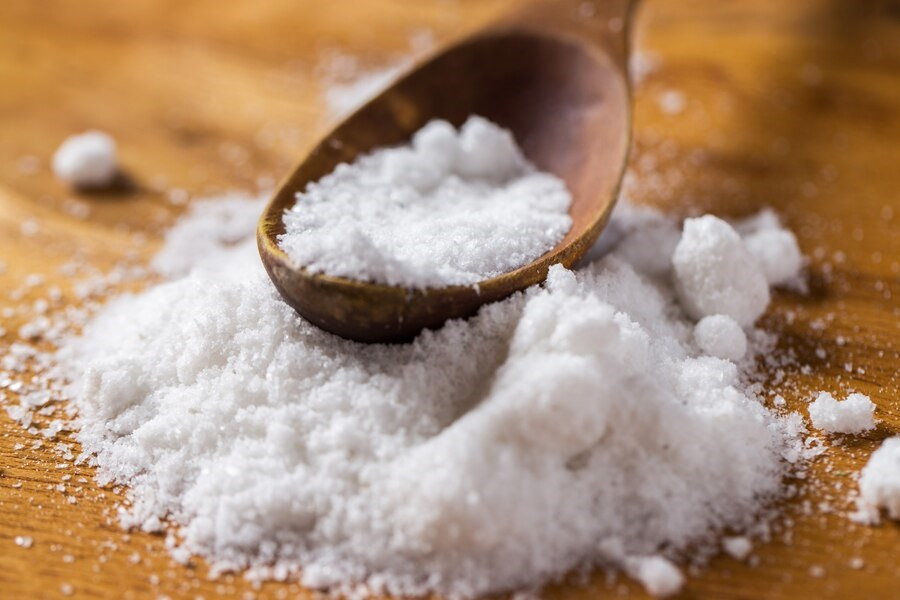Salah satu tantangan yang dihadapi ibu hamil adalah memenuhi kebutuhan nutrisi selama kehamilan. Di awal kehamilan, ibu hamil terkadang mengalami morning sickness yang membuatnya tidak nafsu makan atau sering memuntahkan makanan yang baru saja dikonsumsi. Padahal, ibu hamil membutuhkan nutrisi yang lengkap untuk mendukung perkembangan janin.
Nutrisi yang Diperlukan Ibu Hamil di Awal Kehamilan
Di awal kehamilan, ibu hamil mengalami beberapa gangguan kesehatan seperti morning sickness dan heartburn yang membuat ibu tidak nafsu makan. Di sisi lain, ibu membutuhkan sejumlah nutrisi yang dapat mendukung pertumbuhan ibu dan janin.
Untuk mengatasinya, ibu hamil dapat makan dalam porsi kecil namun sering. Namun yang terpenting, makanan yang dikonsumsi ibu hamil adalah yang mengandung nutrisi yang dibutuhkan ibu dan janin.
Beberapa nutrisi yang dibutuhkan ibu hamil di awal kehamilan, antara lain:
1. Asam folat
Ibu hamil tentunya tidak asing dengan nutrisi asam folat. Asam folat atau yang dikenal dengan vitamin B9 adalah vitamin larut air yang berfungsi untuk mendukung pembentukan sistem organ pada janin dan mencegah janin mengalami cacat tabung saraf.
Untuk memenuhi kebutuhan asam folat, ibu hamil bisa mendapatkannya dengan mengonsumsi sayur-sayuran, kacang-kacangan, buah melon pisang, alpukat dan lemon, ikan dan telur.
Baca Juga: Bolehkah Ibu Hamil Minum Obat Alergi?
2. Protein
Ibu hamil membutuhkan protein untuk pembentukan sel baru dan memperbaiki sel tubuh. Selama hamil ibu membutuhkan protein 71-75 gram per hari. Anda dapat memenuhi kebutuhan protein dengan mengonsumsi telur, ikan, ayam, daging sapi, kacang-kacangan, susu, dan produk olahan susu.
3. Kalsium
Selama hamil, janin akan mengambil kalsium dari tulang ibu. Apabila ibu tidak memenuhi kebutuhan kalsium selama hamil maka ibu hamil berisiko mengalami osteoporosis di masa mendatang. Beberapa makanan yang mengandung kalsium antara lain keju, susu, olahan susu lainnya seperti yoghurt dan sayuran berdaun gelap.
Kebutuhan kalsium selama hamil mencapai 1000mg per hari.
4. Zat besi
Saat hamil kebutuhan akan darah meningkat seiring dengan pertumbuhan janin di kandungan. Untuk itu kebutuhan zat besi ibu hamil juga akan meningkat. Selama hamil kebutuhan zat besi dianjurkan adalah 27 miligram. Anda dapat memenuhi kebutuhan protein melalui konsumsi telur, daging sapi, daging ayam dan protein nabati seperti tahu, tempe dan bayam.
Baca Juga: Ini Manfaat Senam Hamil Secara Rutin bagi Ibu Hamil dan Janin
5. Vitamin D
Vitamin D termasuk salah satu nutrisi yang diperlukan ibu hamil. Vitamin D diperlukan untuk menjaga kesehatan mata dan kulit. Untuk memenuhi kebutuhan vitamin D ibu hamil, Anda bisa mengonsumsi salmon, ikan sarden, susu, dan vitamin kehamilan. Agar penggunaan vitamin D lebih optimal, Anda bisa memperbanyak berjemur di pagi hari.
6. DHA
Untuk mengoptimalkan kesehatan janin, para ahli merekomendasikan agar ibu hamil mengonsumsi setidaknya 200 mg DHA per hari. DHA adalah asam lemak omega-3 yang memegang peranan penting dalam pertumbuhan sel terutama pada otak, saraf, kulit dan mata.
Kecukupan DHA juga dapat mencegah kelahiran prematur, memastikan bayi tumbuh dengan berat badan yang cukup serta membantu suasana hati ibu setelah persalinan. Tubuh kita tidak bisa menghasilkan DHA sendiri sehingga perlu mendapatkannya dari makanan. Beberapa makanan yang mengandung DHA antara lain ikan salmon, lobster dan udang.
Ibu hamil perlu memerhatikan kebutuhan dan pemenuhan nutrisi selama hamil. Jika Anda memiliki pertanyaan seputar nutrisi yang diperlukan selama kehamilan, konsultasikan dengan dokter melalui aplikasi AiCare.
Mau tahu informasi seputar nutrisi, makanan dan tips diet lainnya? Cek di sini, ya!
- dr. Monica Salim
Mayo Clinic. Pregnancy diet: Focus on these essential nutrients. Available from: https://www.mayoclinic.org/healthy-lifestyle/pregnancy-week-by-week/in-depth/pregnancy-nutrition/art-20045082#
Walsh, K. (2022). What to Eat in the First Trimester. Available from: https://www.whattoexpect.com/pregnancy/eating-well-menu/first-trimester.aspx
The American College of Obstetricians and Gynecologists. Nutrition During Pregnancy. Available from: https://www.acog.org/womens-health/faqs/nutrition-during-pregnancy
Lindberg, S. (2020). DHA and Pregnancy: What You Need to Know. https://www.healthline.com/health/dha-and-pregnancy/











